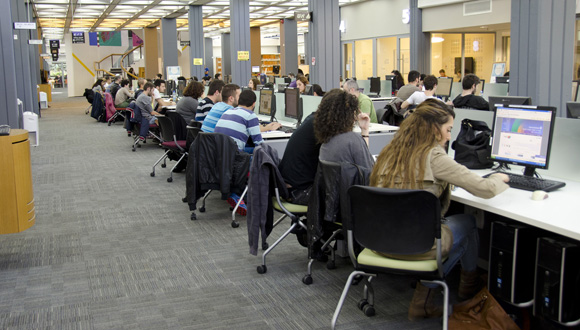
Diamonds in the Rough
Written on | Medicine, Tel Aviv University
Maximizing the potential of TAU students on the autism spectrum.
Giving a presentation in front of a class can be daunting for any university student. For someone with autism spectrum disorder (ASD), it can be terrifying.
Routine study tasks like this can make higher education an unattainable dream for most people with ASD, which reduces the ability to connect with people. To help, TAU established Yahalom (“Diamond”), a comprehensive program that supports high-functioning ASD students from the moment they enroll at TAU through to graduation.
“Today we know that ASD does not necessarily affect a person’s academic abilities,” says Alberto Meschiany, Head of the Psychological Services Unit at the Dean of Students Office, which runs the Yahalom program. “We support ASD students in whatever they need help with—primarily enhancing their interpersonal communication skills and ability to independently navigate the complexities of campus life.”
Yahalom was launched in October 2017 with 10 students. Today it has 46—an almost fivefold increase in three years.
“Ultimately, we aim to substantially boost these students’ independence and self-confidence, ensure they complete their degree, and broaden the range of options open to them once they enter the employment market,” explains Meschiany.

Mentors: Heart of the program
Yahalom is run by a dedicated coordinator who gets to know each of the ASD students and also recruits and trains volunteer TAU students as mentors. The goal is to ensure that the mentors know what to expect and how to communicate with ASD people, reduce their anxiety, help with their dealings vis-à-vis the staff and lecturers, accompany them to classes, and meet whatever other day-to-day needs may arise during the academic year. Demand among students wishing to be mentors is high, says Meschiany. “Right now, we can only give the mentors token scholarships, but we would love to give them larger ones. This is our biggest funding need,” he adds. Mentors help in myriad ways. For example, Yahalom heard about an ASD student who had been unnecessarily buying expensive textbooks for almost two years because he didn’t know how to make photocopies at the library and was too embarrassed to ask for help. He was immediately assigned a mentor who now helps him with these types of issues. Many ASD students have asked their mentors for advice on how to tell their classmates about their condition and the difficulties they face.Personal ties reduce stress
Efrat Gilboa, a third-year student of Psychology and Law at TAU, mentors two ASD students. “I’ve always enjoyed volunteering and helping others, and used to work with special needs children. I thought that Yahalom could be an amazing opportunity for me not only to help autistic people integrate into the University, but to try to see the world through their eyes,” she says. “As a Yahalom mentor, my main job is to help the students cope with their study load, better manage their time, and help them flourish,” she explains. “But now we have a real friendship. My students can—and do—contact me whenever they feel like it, whether it’s to ask me a question or show me something interesting that they saw on their way to the campus.” “It’s a real privilege and fantastic experience to be able to mentor these students. They are among some of the best people I’ve had the opportunity to meet,” says Gilboa. “Since I began mentoring them half a year ago, I can see that my students are now less stressed and anxious and are better at managing their time.”
